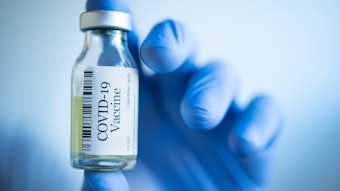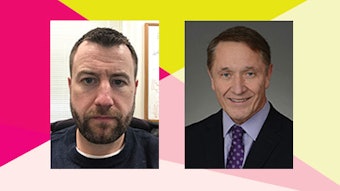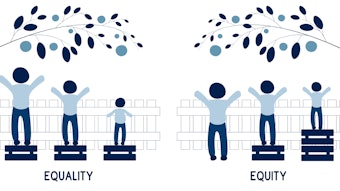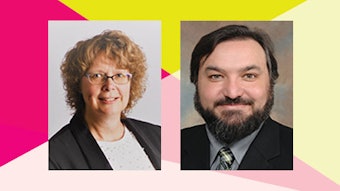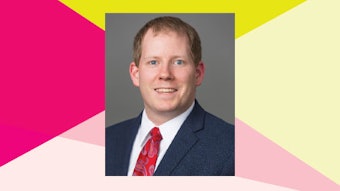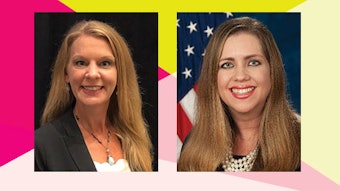Pandemic Brings Global Changes to Pharmacy Profession
Different strategies with one mission: global health and safety.
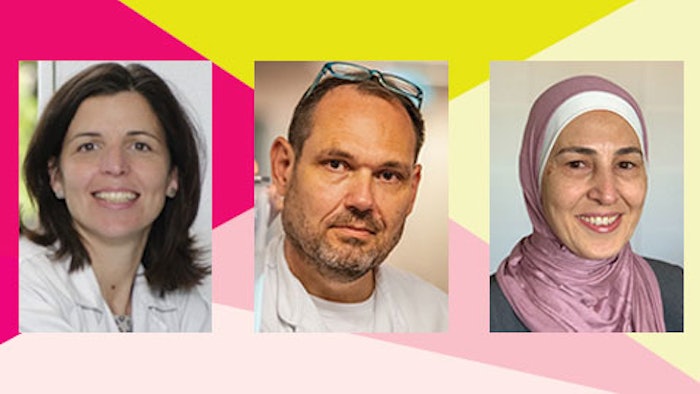
The COVID-19 pandemic has affected pharmacy professionals worldwide. During the on-demand session, "Adapting International Pharmacy to the New Normal in the Wake of a Global Pandemic,” pharmacists from six countries shared their challenges and responses as the disaster unfolded in their homelands.
Ana Herranz Alonso, assistant director of pharmacy at Gregorio Maranon Hospital Madrid in Spain, said that the pandemic required the department to redefine its role within the hospital and the roles of leadership and management, to support the creation of new pharmacy services while keeping patients and their families safe.
“All of that had to be done in this crisis environment where one day was different from another,” she said. “We had an exponential increase in demand for resources, constant changes in protocols, regulation changes and exceptions, and, of course, in an environment where the staff was really feeling high impact stress.”
Alonso said her hospital created a COVID-19 Experts Group, a multidisciplinary team that took a comprehensive approach to managing the disease.
“All of the recommendations about treatment were made by the group pharmacists working within the team,” she said. “It was challenging because they had to do these protocols without any strong evidence of the results of the treatment.”
In the Netherlands, the first COVID-19 cases arrived in March 2020. Gerard Hugenholtz, president of the Dutch Society of Hospital Pharmacists at Diakonessenhuis Hospital, Utrecht & Zeist, said the country quickly determined that it would exhaust its supply of critical care medications in about 12 days.
The hospital pharmacy team formed a COVID-19 expert group which, among other things, took to prime-time media to bring attention to the problem.
“As a result, a sense of urgency was felt by politicians and healthcare administrators,” Hugenholtz said, “and hell breaks loose.”
The Dutch Association of Hospital Pharmacists was asked to assure the availability of sufficient critical care medications for patients with COVID-19. That led to the creation of the Dutch National COVID-19 Medication Coordination Center, whose mission was to ensure a sufficient supply of medications for all patients ill with COVID-19 in the nation’s intensive care units. The organization centrally coordinated and assessed medication availability, daily medication needs, purchasing and distribution, and compounding of medications as needed. The center was in full operation within days, and Hugenholtz said anxiety about shortages quickly abated. However, he added that meeting those challenges meant bending a few rules.
“We talked about us breaking a lot of rules for the sake of healthcare with our authorities,” he said. “And they told us, ‘Please, do your job, it’s a war situation. As long as you do your job properly and don’t disappear with the money to some Caribbean island it’s okay, we’ll understand. We’ll evaluate later.’”
As the first cases of COVID-19 arrived in Jordan in March 2020, the nation went into complete lockdown and curfew. All businesses — including community pharmacies and grocery stores — locked down. For Lama Nazer, head of pharmacy research and staff development at the King Hussein Cancer Center in Amman, that meant immediate changes.
“Jordan had the toughest lockdown in the world, or at least one of the world’s strictest lockdowns,” she said. “And we as a healthcare organization had to think about strategies that could help us continue providing our patient care.”
The organization arranged for staff transportation while public transportation was shut down, minimizing contact between teams working different shifts in the pharmacy areas and providing staff with remote access to patient files in the pharmacy’s electronic records system.
The hospital also implemented telepharmacy services, converted many clinics to virtual, and established a mail order service for medication refills.
“Everyone worked very hard to make sure that the patients got their medications on time,” Nazer said. “There were boxes everywhere in the pharmacy department. I can’t say that it was an easy task, but it was really the teamwork, the commitment, and the dedication that helped us achieve our goals.”
This session is part of ASHP’s 2021 Donald E. Francke Lecture Award programming. This year’s lecture, "Adapting International Pharmacy to the New Normal in the Wake of a Global Pandemic," delivered by 2021 Francke medalist Lijian “Leo” Cai, chief pharmacy officer at Roswell Park Comprehensive Cancer Center in Buffalo, New York, is available as an on-demand session.
